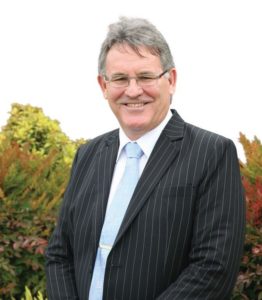
Pakuranga College principal Michael Williams has been reappointed as president of the Secondary Principals Association of New Zealand (SPANZ) for a second year in a row.
The association represents 90 per cent of the secondary principals in New Zealand was formed 30 years ago at a time when secondary school principals were frustrated their voices were not being heard.
“Mine was the only nomination, I was closely contested,” smiles Mr Williams, who works seven days a week with 12 hour days since he has been vice president (four years) and president (one year). It is the only independent body representing the views of secondary principals at the policy development and implementation level with Government, Ministry of Education, Education Review Office and Education Council.
It’s a demanding job wearing two big hats that represents running a college with a roll of more than 2000 students and regularly whizzing off to Wellington to attend high-powered meetings that initiate educational debate and represents principals in educational and public forums.
One of the biggest issues that secondary schools principals are grappling with is the teacher shortage, says Mr Williams.
“The salaries and conditions for teachers are not financially attractive and with the workforce getting older, and the drop-out rate of new teachers increasing to 40 per cent in the last five years, it is getting harder to fill in the gap.
“This year was the hardest,” he says about schools having a tough time finding good teachers.
“We’ve had to call back teachers from the retired workforce or have had to retrain teachers in subjects like maths or science that they hadn’t trained for earlier.
“Some of the schools have also appointed teachers whom they normally wouldn’t, and given them a lot of support from other teachers.
“We have a serious problem and the statistics are pretty scary,” says Mr Williams, who has liaised with three Education Ministers including Hekia Parata, Nikki Kaye and currently with Chris Hipkins.
“As more teachers are retiring, there aren’t that many coming into the fold due to the complexity of the job. There’s something wrong in the equation.”
He says that working on the upcoming collective salary contract is going to be very interesting.
“The secondary schools principals feel that we have to solve the problem with a 20 per cent pay rise for teachers.”
Currently Mr Williams is also on the advisory board that works with the newly-appointed Task Force headed by former Pakuranga College principal Bali Haque-to review education in New Zealand.
“The Minister for Education is in the process of reviewing Tomorrow’s Schools – all schooling in New Zealand and is keen for us to have a 30-year plan. It will be a cross-party agreement of the direction we will be heading in.
“It involves a lot of work starting with two summits in Auckland and Christchurch – a two-day talk fest with a cross-section of researchers, principals, teachers, students and other stakeholders.
“There is an online survey to initiate conversations on education– www.conversation.education.govt.nz”
Having just returned from an International Summit on Teaching profession driven by Organisation for Economic Cooperation and Development (OECD) and Education International ( a collective of unions globally), Mr Williams says teacher shortage is a global problem.
Meanwhile, one of the issues discussed at the summit focussed on new challenges and opportunities in the teaching profession – artificial intelligence in classrooms. Will it replace teachers?










